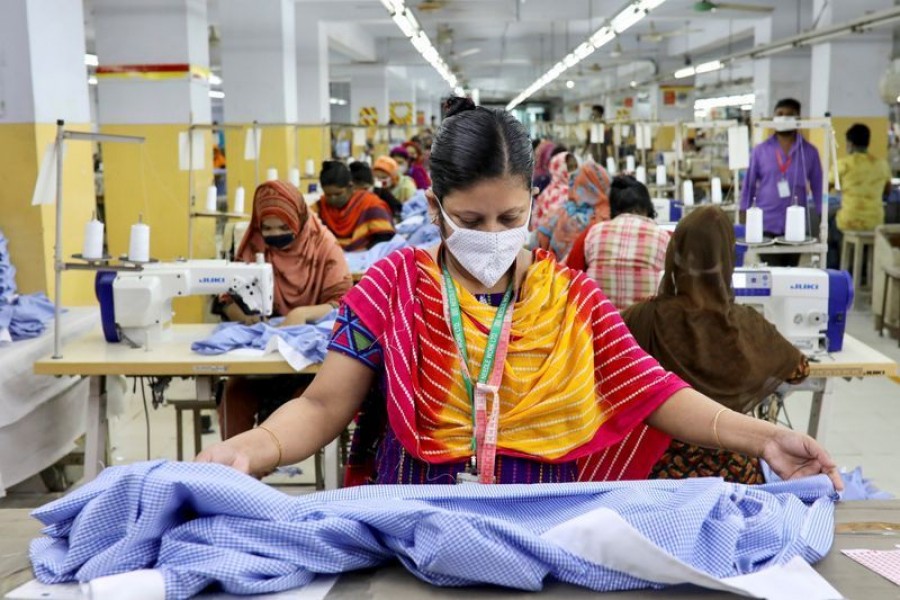Bangladesh should ensure full implementation of labour rights and international conventions to be eligible for EU GSP plus scheme, experts have said.
With the graduation from LDC status, Bangladesh will face several challenges, including the loss of preferential market access in the European Union (EU).
They recommended many legislative, structural, and administrative changes to address the challenges related to labour standards.
Major revisions include the elimination of provisions that allowed employment of workers under the age of twelve and the establishment of an administrative process for trade union registration and labour inspection.
Local exporters will enjoy the same trade benefit in the EU even after Bangladesh’s graduation if it can obtain GSP plus status by fulfilling the conditions, they added.
The observations and recommendations have been made during a virtual dialogue ‘EU’s EBA & Prospect of GSP+ for Bangladesh: Addressing challenges related to Labour Laws and Rights’, organised jointly by the Centre for Policy Dialogue (CPD) and Networks Matter on Wednesday.
Bangladesh has made a lot of progress in terms of ensuring a decent work environment in factories, especially in the garments sector, and some progress is still needed to make in nine other areas, said CPD’s Research Director Khondaker Golam Moazzem while presenting the study findings.
There is still a lot to be done in terms of implementation of the laws, he said.
He recommended the inclusion of addressing the workplace harassment issues in the legal framework, tackling the forced labour issue properly, concerns of the ILO Committee of experts and the improvement of overall monitoring and implementation framework of decent work.
Tuomo Poutiainen, country director of International Labour Organization (ILO) Bangladesh, EU ambassador in Dhaka Ransje Teerink, Socialist Labour Front General Secretary Razequazzaman Ratan, BGMEA Vice President Arshad Jamal and BKMEA Vice President Mohammad Hatem, among others, spoke in the virtual meeting.


